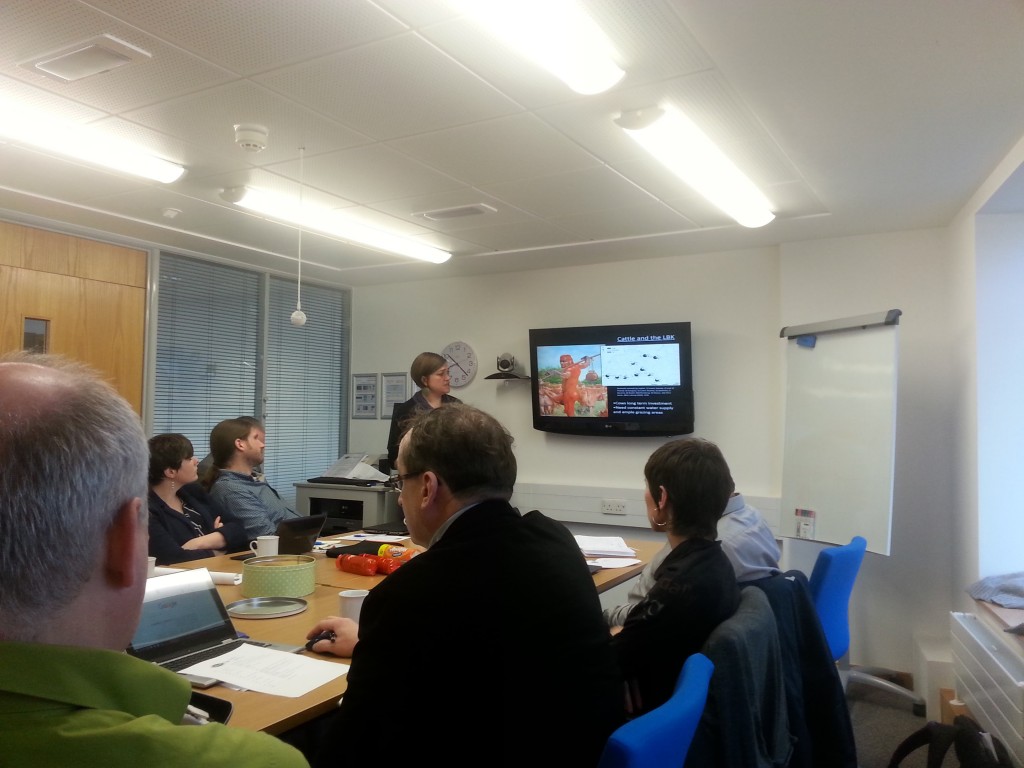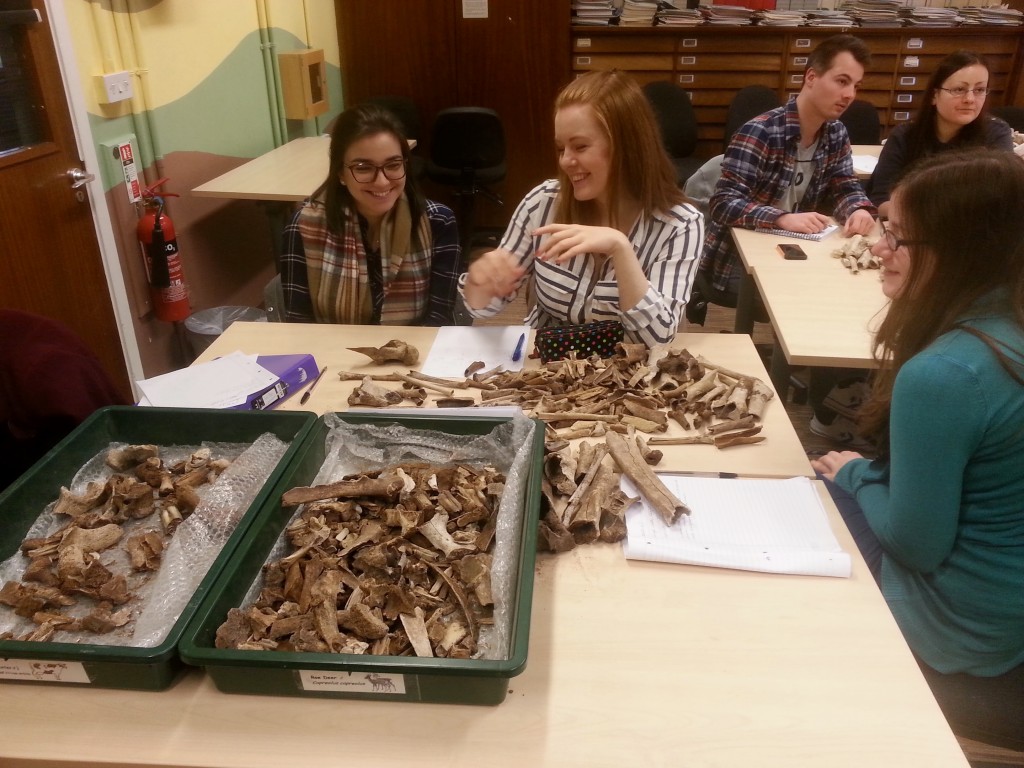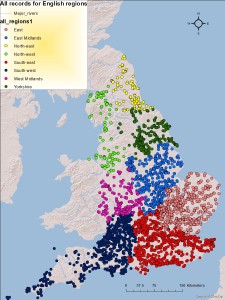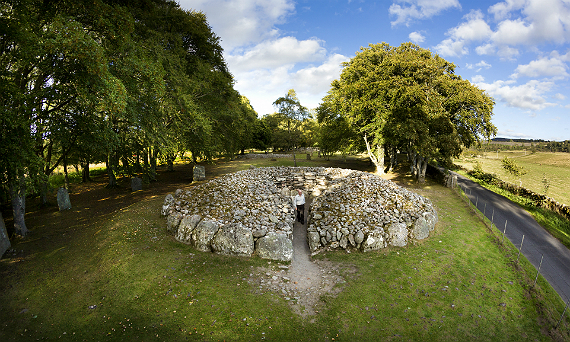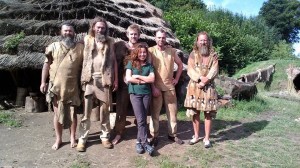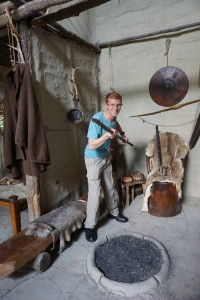It was pollen diagrams galore on Friday when paleo-ecologist Professor Henry Hooghiemstra came to talk to us about Anthropogenic Impact on Columbian and Ecuadorian ecosystems. In a fascinating talk Hooghiemstra took us to many ecological zones of Columbia and Ecuador, from the high Andes to the savannah and tracked the human impact on these landscapes.
Category Archives: Around the Department
NeoMilk Project Meeting
The University of Exeter’s Archaeology department recently played host to a team meeting of the NeoMilk project, in which Professor Alan Outram and his PhD student Emily Johnson are heavily involved. The NeoMilk project investigates where and when (and indeed why) dairying arose in temperate Neolithic Europe, through lipid residue analysis of pottery and faunal analysis of carcass processing and husbandry practices. Another vital element of the project is the chronicling, mapping and correlating patterns of environmental and cultural change related to animal management and milk use.
Research Seminar #14: “How far removed is the commercial archaeology market from academia?” by Taryn Nixon
Last week we had the absolute pleasure of welcoming Taryn Nixon to speak at our departmental seminar. Taryn is the CEO of Museum of London Archaeology (MOLA), who operate commercially through development-led archaeology. Her talk concerned some of the major work MOLA have been doing in London, how it links with various research agenda and how it might be similar or different from the roles academics play at universities. Alongside their commitments to developers, Taryn was keen to emphasise the role MOLA play in establishing links with the heritage of a place and the local community.
As part of this she presented “3 Days in the Life” of a particular case study: the Bloomberg Place project in Walbrook, Central London. This site was first excavated in 1954 during the post-war development of London when a Roman temple was discovered: London Mithraeum. This temple was dedicated to a mysterious Roman cult from Persia celebrating Mithras and instantly caught national attention with over 400,000 people lining the streets to visit the excavation. At the time only a single archaeologist worked on site alongside the construction workers.
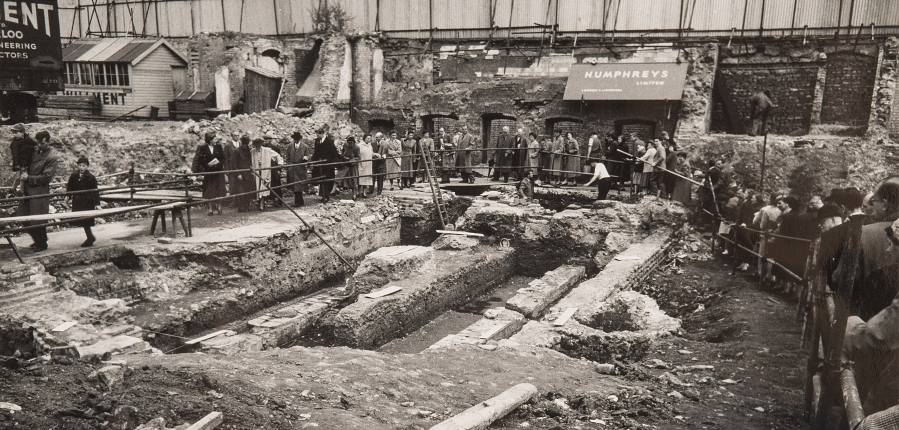
Temple excavation 1954
“The Great Human Race”: Dr Hurcombe on the challenges faced by Homo habilis
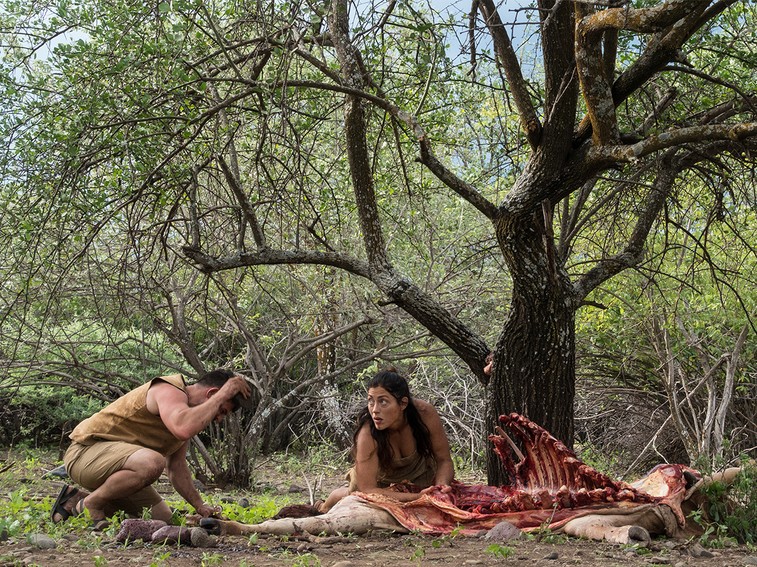
Credit: National Geographic
Watch out for “The Great Human Race” which premiers February 1 at 10/9c on the National Geographic Channel. The programme features Bill Schindler, an anthropologist and experimental archaeologist in the US, as one of the co-presenters. Exeter University’s Dr Linda Hurcombe, as a leading figure in experimental archaeology and primitive technology, was asked to comment on some questions in the lead up to this series being broadcast. This posted message forms part of an ongoing virtual roundtable discussion.
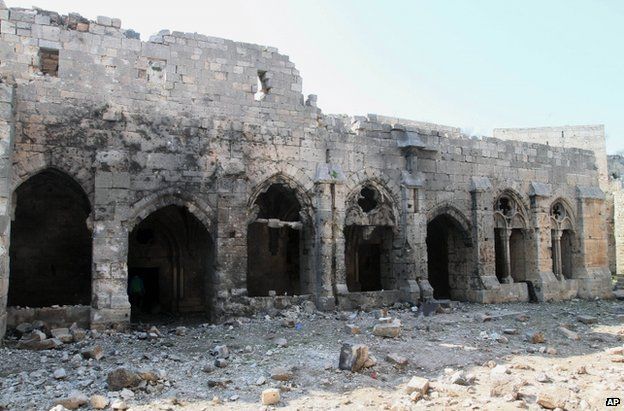
Research Seminar #13: “Looting and Archaeological Destruction in Syria” by Emma Loosley
On Friday the 22nd January we were delighted but apprehensive to welcome Dr. Emma Loosley, Associate Professor in Theology and Religion, back to our department to talk about destruction of monuments in the Middle East. This extremely current and distressing issue was sure to evoke some strong emotions from the audience.
Advanced Zooarchaeology Fracture Practical
One of the advanced osteology courses available to archaeology master’s students is Advanced Zooarchaeology, which aims to provide a sophisticated appreciation of the theory and practice of zooarchaeology and how bone assemblages can be interpreted. As part of this course students have been participating in a practical session on Fracture and Fragmentation in faunal assemblages. The students were split into three groups and given three different assemblages to work on – a waterlogged Iron Age site, a medieval castle and material from medieval Exeter.
Research Seminar #12: “Characterising the Rural Landscape of Roman Britain” by Neil Holbrook
On Friday 15th January our Departmental Seminar Program kicked off with Neil Holbrook of Cotswold Archaeology talking to us about the fascinating Roman Rural Settlement Project. This project, undertaken in collaboration with the University of Reading and funded by Historic England and the Leverhulme Trust, was conceived partly in response to the almost mechanical excavation, publication and discussion of Roman Rural Settlements, due to the perceived similarity of the sites. The project aimed to highlight the differences in life experience of people living at rural settlements.
Research Seminar Series 2016
The programme for our Research Seminar Series 2016 has been announced! All are welcome to come and listen to our fascinating speakers on a variety of topics. The usual time and place are Fridays, 2pm in LT3 (Laver Building), although please check the programme below for any deviations. Our first seminar of the term starts on the 15th January, and you can follow all the action via summaries on our blog!
Research Seminar #11: “The Use and Reuse of Stone Circles” by Richard Bradley
Richard Bradley came to talk to us before Christmas about the use and reuse of stone circles. In a fascinating presentation he took us through many early Bronze age sites, describing their possible original purpose and showing the archaeological evidence for later use and, in some cases, destruction. Right up to Christian times stone circles were being used as a strategic reference back to local and non-Christian traditions. Bradley also showed that in the modern period new stone circles are being built all the time, and thus the cycle continues.
Grants Awarded to Exeter Archaeology PhD Students
Two of our PhD students have recently been awarded grants for archaeological experiments and analysis related to their PhD topics!
Alice La Porta, one of our AHRC SWW DTP PhD students under the supervision of Linda Hurcombe and Rob Hosfield (University of Reading), has been awarded two grants. The first grant will fund Alice’s experiments into the uses of Middle Palaeolithic (i.e. Neanderthal) stone tools, with an emphasis on their performance and subsequent use-traces, for which Alice will be spending time at open-air museums in Germany, Denmark and Finland. The second grant will enable Alice to make a study visit to the Institut Català de Paleoecologia Humana i Evolució Social in Tarragona, to examine a Middle Palaeolithic archaeological collection, with a particular emphasis on use-wear analysis.
Matthew Knight, another of our AHRC SWW DTP PhD students, supervised by Linda Hurcombe and Joanna Brück (University of Bristol), has also been awarded a grant for experimental activities. Matt will be conducting experiments with a variety of Bronze Age metal objects that have never been undertaken before. He will be utilising replica daggers, swords, socketed axes and barbed spearheads in a variety of use experiments, before subjecting them to a series of destructive practices to reproduce criteria and conditions seen on prehistoric artefacts. These experiments will result in the first ever reference collection for studying destruction of Bronze Age metalwork.
Very well done to both Alice and Matt; we can’t wait to see the results of your experiments!


